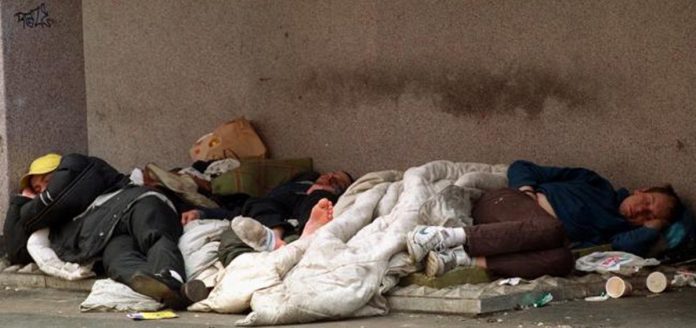Turning a Blind Eye: The Psychology and Sociology of Ignoring the Homeless
Every day, countless individuals walk past those experiencing homelessness without so much as a glance. These individuals, many of whom have names, histories, and untold stories, are rendered invisible by a society that chooses to ignore their plight. The reasons for this behaviour are deeply rooted in both psychological mechanisms and sociological structures, which perpetuate this indifference.
Psychological Dimensions of Ignorance
Cognitive Dissonance
One significant psychological factor is cognitive dissonance, the mental discomfort experienced when one’s beliefs clash with their actions. Most people believe in compassion and fairness, yet helping someone homeless often feels overwhelming or inconvenient. Ignoring the homeless becomes a way to resolve this dissonance, allowing individuals to avoid confronting their inaction.
Dehumanisation and Othering
Another key factor is dehumanisation. Studies have shown that people sometimes perceive the homeless as less human or as part of an “other” group. This psychological distancing reduces feelings of empathy and guilt. It allows individuals to rationalise their indifference by subconsciously framing the homeless as fundamentally different from themselves.
The Bystander Effect
Psychology also points to the bystander effect, where the presence of others reduces the likelihood of individual action. When people see someone homeless on a busy street, they may assume that someone else will help or that their contribution would be insignificant amidst a sea of inaction.
Sociological Structures and Influences
Structural Inequality
Sociologically, indifference to homelessness is embedded within structural inequality. Societies like the UK often normalise stark disparities in wealth and privilege, subtly reinforcing the idea that homelessness is inevitable or even deserved. This mindset is exacerbated by policies and media narratives that frame homelessness as a personal failure rather than a systemic issue.
Urban Anonymity
Modern urban environments contribute to a sense of anonymity and disconnection. In cities, individuals are bombarded with stimuli and often prioritise their own survival—whether financial, emotional, or physical. This fast-paced lifestyle fosters a culture of detachment, where stopping to engage with the homeless feels incompatible with the rhythm of urban life.
Stigma and Fear
Homelessness is heavily stigmatised, with stereotypes painting those affected as dangerous, addicted, or lazy. These prejudices discourage engagement and foster fear or discomfort. Additionally, there is often a lack of understanding about how homelessness arises, perpetuating myths that absolve society of responsibility.
The Consequences of Indifference
Ignoring the homeless has far-reaching implications. It deepens the isolation and marginalisation of already vulnerable individuals. It also erodes societal cohesion, fostering environments where empathy and communal responsibility are diminished. For those who walk past, it reinforces a disconnection from shared humanity.
Towards a More Compassionate Society
Addressing this indifference requires both individual and collective efforts. Education can dismantle harmful stereotypes, while policies aimed at reducing inequality and providing robust social support can address the root causes of homelessness. On a personal level, small acts of kindness—acknowledging a person’s presence, offering assistance, or advocating for systemic change—can challenge the norms of detachment.
Ultimately, the choice to look away from homelessness reflects broader societal values. If we strive to build a society rooted in empathy and justice, then recognising and addressing our indifference is a crucial step. It begins with seeing those we’ve rendered invisible and remembering their shared humanity.







